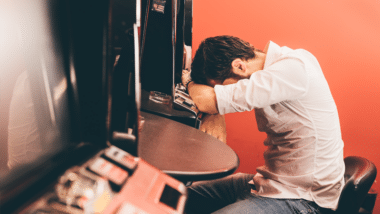Over 50 organisations have urged the Education Secretary to prevent schools from using “harmful classroom materials” funded by the gambling industry.
In an open letter to Bridget Phillipson, 58 signatories, including Director of Coalition to End Gambling Ads Will Prochaska, warned that resources promoted as a “form of harm prevention” can actually “normalise harmful behaviours” and “omit or misrepresent important risks”.
The letter argued that GambleAware and The Young Gamers & Gamblers Education Trust’s promotion of “responsible gambling” may encourage “gambling initiations, for example by teaching students how to use a betting slip”. GambleAware is Great Britain’s most high-profile charity on gambling-related harm, but has been funded through the betting industry’s donations.
‘Distortion’
The signatories called on the Education Secretary to follow the Republic of Ireland’s example, and issue “official guidance stipulating that schools should not use materials funded by harmful industries”.
Chris van Tulleken, Professor of Infectious Disease and Global Health at University College London, said: “We wouldn’t let big tobacco teach children about smoking. So why are we allowing the alcohol, gambling and junk food industries into classrooms?
“Allowing these industries into schools distorts learning and helps industry establish the next generation of customers.”
‘Urgent action’
Dr May van Schalkwyk, a public health Research Fellow at the University of Edinburgh, added: “The evidence is clear. Industries whose products are undermining the health and wellbeing of children and young people fund harmful youth education programmes as part of their corporate strategies.
“Urgent action is needed to prevent this form of influence and conflicts of interest”.
In response, a Department for Education spokesperson stated that it has “already strengthened statutory guidance to address these concerns, making it clear that schools should check that external resources are unbiased and should guard against organisations that have a broader interest in promoting harmful products.
“Schools are responsible for setting their own policies on these subjects, in line with this guidance, and are best placed to decide what materials, speakers or organisations to use based on their knowledge of their pupils and communities.”

Govt opens way for multiplication of high-stake slot machines
Brent MP launches campaign against high street betting shop onslaught

